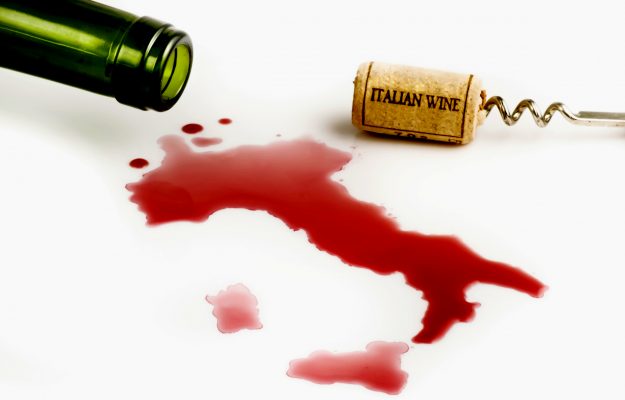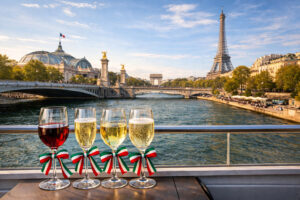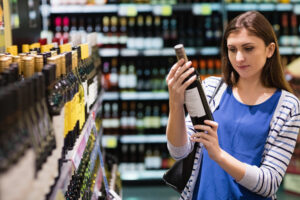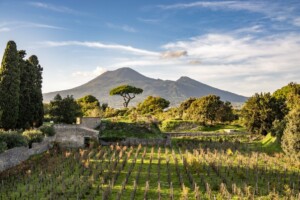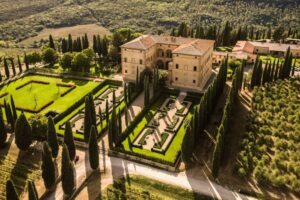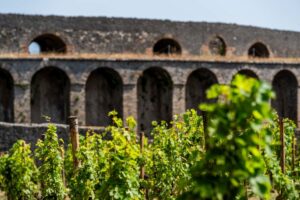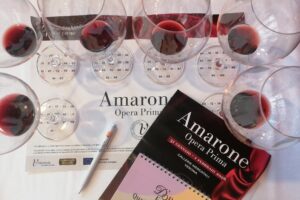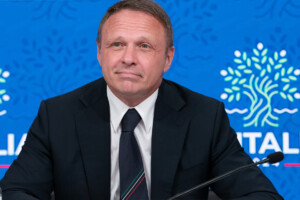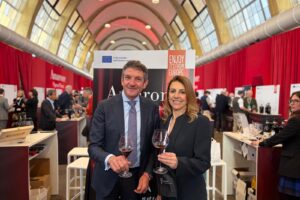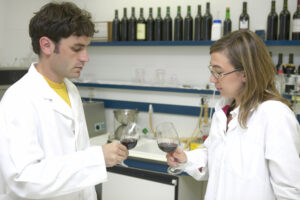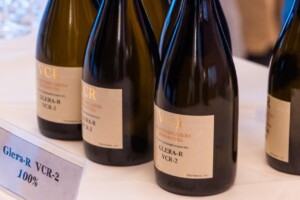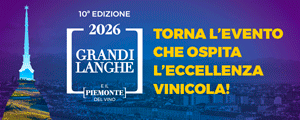“Italy is a leader in wine production, and together with France and Spain we are working on a joint document that challenges the choice that Ireland wants to pursue, and also the passive attitude of the European Union”. Thus, to WineNews, the Minister of Agriculture and Food Sovereignty, Francesco Lollobrigida, whose action is part of an increasingly accessed debate in Italy and Europe on the issue of wine and health, which fills the news these days, with actions, critics, but also support and approvals, to Ireland’s green light to include “health warnings” on all alcohol product labels (an initiative endorsed with silence-consent by the EU Commission, despite the unfavorable opinion of the Euroaparliament, ed.). Theme on which, in recent days, the national generalist media has also shone a light on due to the stances of doctors who have become famous in the Covid era, such as Antonella Viola of the University of Padua (pro-Ireland and supporter of the WHO positions that alcohol is bad for you tout court because it is carcinogenic) and Maurizio Bassetti of the University of Genoa and Director of the Infectious Diseases Clinic Policlinico San Martino Hospital in Genoa (supporter of the line of moderate consumption that does no harm, as also reiterated by dietician and chairman of the National Food Safety Committee of the Ministry of Health, Giorgio Calabrese). Speaking out in recent hours has once again been the supply chain, protecting wine. President Assoenologi Riccardo Cotarella, who reiterated how from the Symposium on the subject staged in Naples in recent days, doctors and scientists, supported by so much research, said once again that “moderate and intelligent consumption of wine can only be good for health”.
Federvini led by Micaela Pallini has called for the intervention of the government, Crea and the OIV (International Organization of Vine and Wine) for clarity with great precision because, “we do not accept superficial, ambiguous information based on data not supported by methodologies accepted by the entire scientific community. The issue of the effects of alcohol abuse is an extremely serious topic, which cannot be left to extemporaneous press statements by those who improvise themselves as experts on the subject”, While the Unione Italiana Vini - Uiv, led by Lamberto Frescobaldi, after the words of EU Commission spokesman Stefan De Keersmaecker, who said that “no one is against wine”, but also that the review on the labeling regulation under the Beating Cancer Plan is going ahead, bluntly accused the Commission itself of “fence-sitting”, appealing to Italian institutions, starting with the Ministry of Health, to express their position on an issue that must no longer originate misunderstandings”, said Uiv (Italian Wine Union) secretary Paolo Castelletti.
And today, meeting with the Confagricoltura audience at the “Let’s cultivate social agriculture” award, Minister Lollobrigida (who received as a symbolic gift a bottle of wine from Confagricoltura President Massimiliano Giansanti), with WineNews, returned to the issue: “we moved from the beginning stigmatizing a choice - referring to the Irish one - that has two critical issues: the first is that it is contrary to the opinion of the EU Parliament, which represents the citizens and instances of Europeans, and which had voted against this type of direction, while instead allowing some countries, and in this specific case Ireland, to propose a labeling that stigmatizes not the excesses, which are always wrong, of all products, and in particular of spirits, but the products. It is not wine that is bad for you, and I do not say this, as I am not a scientist, but also very authoritative exponents of the world of medicine and science, such as Giorgio Calabrese, who is also part of Crea, and who said things in perfect line not only with 3,000 years of history, but also with what other authoritative exponents of science and literature say about wine as a factor of well-being, if taken in the right quantities. But wine”, Lollobrigida added, “is also something else: we have to take on the awareness that it is quality, work, sociality, that it is “civilization”, as Ernest Hemingway said, who had, in his time, pointed out wine as one of the first signs of man’s civilization, because around it there is a model that comes from the relationship between man, land, transformation, study, which we want to defend.
And then there is another element: Italy is a leader in wine production, and together with France, and with Spain, we are working on a common document that challenges the choice that Ireland wants to bring forward, and also the passive attitude of the European Union. We want labeling that is homogeneous and really informs. We want people to really know what they are using, eating, and drinking, in detail, what are the recommended amounts, what are the excesses that can be bad for them, and so we also think that models like nutriscore are wrong, while we think that other models like nutrinform help in this regard. And, therefore, this model is in contrast to models that stigmatize a product, as in Ireland, which, moreover, is not a wine producer, and we also see in this an attempt to close a market in favor of other domestic productions. Someone”, Lollobrigida said again, “stigmatizes those who represent farmers, winemakers, the supply chain, as a lobby, but there is none of that. There is a system that needs to be defended, a system of quality, of production, working together, and what we want to do is this, working together, the Italian system, together with other European nations, is opposed to the wrong choices that we want to oppose in the name of cultural, employment, economic and even welfare factors, because that is what we are talking about, and not to a right choice that you want to oppose because of interests. I really appreciated the work of my colleague Antonio Tajani, Minister of Foreign Affairs, who, in a confrontation with his Irish counterpart, made sure that a table of reasonableness was opened to avoid this kind of attitude on a product that is so important to us. I, at the Food and Agriculture Forum in Berlin, did the same thing in a pre-emptive way with the Minister of Canada, since there were rumors of similar initiatives (as we reported Canada revised its guidelines on alcohol consumption, ed.) but she ruled out a type of labels like the Irish ones in Canada, which is, moreover, an important market for Italian wine”.
And, late yesterday evening, in this sense, had come the very statements of Foreign Minister Tajani, after a meeting with his Irish colleague Michael Martin, on the sidelines of the EU Foreign Affairs Council in Brussels: “We are working with the Ministers of Health, Schillaci, and Agriculture, Lollobrigida, to find a positive solution to the problem. I met with the Irish Foreign Minister and raised with him the issue of wine labeling. I explained how dangerous is the message coming from Dublin”, said Tajani, that the Irish law is basically “a form of Nutriscore applied to wine”.
Ireland, Tajani noted, is “in favor of Nutriscore, which we strongly oppose in the EU institutions, because it is a detriment to the Mediterranean diet, which is a fundamental tool not only of health protection. This, too, I reiterated. For us, a glass of red wine, and all the doctors say it, is also good for the heart, so it is doubtful that it can also hurt. Of course abuse is always bad, even the abuse of water, if you drink 10 liters of it. “In medio stat virtus”, the Romans used to say: that is, we need to find a solution”, Tajani further said, “that protects health but does not affect agricultural and agro-industrial production, such as that of wine, which is fundamental in our country also for exports”.
In the recent past, Tajani recalled, "we had also managed to win another parliamentary battle, when I was still an MEP, to have wine excluded from carcinogens in a European Parliament document. We had won it then, and we would not like to see the debate on this reopened now another time. I have found willingness for discussion from the Irish foreign minister; we will put our ministries of agriculture and the relevant ministries in touch to see if a positive solution can be found. We will see. I with great fairness have expressed our concern. I have already informed Lollobrigida and Schillaci so that we can open a dialogue and discussion with their Irish counterparts. We hope well. We are trying our best; however, we continue to defend the Mediterranean diet, we defend made in Italy, we defend good Italian wine. With the understanding that we need to make intelligent consumption”.And on the role of the EU Commission, Minister Tajani said, “now the Commission must address the issue of Nutriscore, which it seems to have temporarily suspended. Of course, the Commission also has to give unambiguous rules: because if it says no more Nutriscore as it seems it’s going to do, or at least postpone it because we’re winning the battle on that front, and then every member state in fact starts using Nutriscore, things are not going well. And that’s what happened in Ireland, a kind of nutriscore limited to wine. Certainly”, Minister Tajani noted again, “the Commission, as far as I’m concerned, needed to intervene more firmly, to provide clarity. In fact, with Minister Lollobrigida we wrote to Brussels. If there start to be cultural or health restrictions towards wine, to the export of Italian products in the world, this is not good and does not make our products competitive. So, of course, the Commission in my opinion should intervene and bring the rules of a country back in tune with the rules of the European market, since there is a single market”, Tajani concluded.
Copyright © 2000/2026
Contatti: info@winenews.it
Seguici anche su Twitter: @WineNewsIt
Seguici anche su Facebook: @winenewsit
Questo articolo è tratto dall'archivio di WineNews - Tutti i diritti riservati - Copyright © 2000/2026










